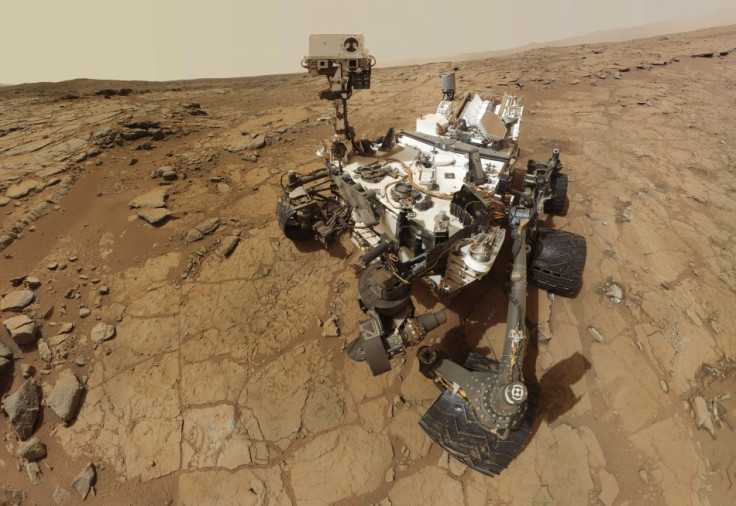Nasa's Curiosity Rover Sings Happy Birthday to Itself on Mars [VIDEO]

Nasa's Curiosity rover has marked its first anniversary on Mars by singing Happy Birthday to itself in what may be the loneliest celebration in the galaxy.
Scientists used Curiosity's Sample Analysis at Mars (SAM) instrument to sing the birthday tune to the 2,000lb machine.
Florence Tan, lead electrical engineer of SAM, the on-board chemistry laboratory used to analyse soil samples, said: "Curiosity landed on Mars on August 5<sup>th (PDT), 2012. It was born on Mars that day, and so we consider that day as its birthday."
According to technology website CNET, she added: "This is a first for NASA and for the world and music brings us all together, so this is fun."
Curiosity touched down on Mars on 6 August 2012. Since then, it has already achieved its main goal of showing Mars could, at some point, have supported life.
Happy Birthday was sang to Curiosity through vibrations at different frequencies. It was tested in an identical SAM unit on Earth before instructions to play the song were sent to the rover.
Human exploration
Nasa administrator Charles Bolden said Curiosity's findings would help to put the first humans on Mars.
"Successes of our Curiosity - that dramatic touchdown a year ago and the science findings since then - advance us toward further exploration, including sending humans to an asteroid and Mars. Wheel tracks now will lead to boot-prints later."
Curiosity has so far produced 190 gigabytes of data, including 35,000 thumbnail images and 75,000 laser shots.
It is the size of a car and is making its way to the base of Mount Sharp, where it will investigate the lower layers of the Martian mountain that rises from the floor of the crater.
John Grotzinger, from the California Institute of Technology, said: "We now know Mars offered favourable conditions for microbial life billions of years ago. It has been gratifying to succeed, but that has also whetted our appetites to learn more.
"We hope those enticing layers at Mount Sharp will preserve a broad diversity of other environmental conditions that could have affected habitability."
At present, millions of budding astronauts are waiting to find out if they will be shortlisted for the Mars One project, which aims to have a human settlement on the red planet by 2023.
© Copyright IBTimes 2025. All rights reserved.




















